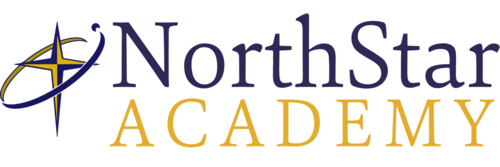Summary of Course Content and Activities:
Physical Education and Wellness 6 (or PEW 6) is based on the new Alberta curriculum (2022). PEW supports a strength-based focus that promotes the development of the whole individual and aims to nurture students in their pursuit of living healthy and active lifestyles. Physical education improves the quality of life for individuals, families, and communities. As students become physically literate, they develop the motivation, confidence, physical competence, and knowledge to value and take on the responsibility for engaging in a wide range of physical activities. Wellness education promotes the vitality of individuals and communities and provides students with opportunities to learn about various aspects of health and wellbeing and to make informed decisions. As students grow and develop, they access, comprehend, evaluate, communicate, and apply health and wellness-related information as a means of promoting, maintaining, and improving wellbeing in a variety of settings throughout their lifetimes. Students who understand the importance of their wellbeing can make healthy living choices because they have developed essential knowledge and skills.
There are 9 units of study: Active Living and Motivation; Movement Skills Development; Developing Character; Personal Safety; Healthy Eating; Healthy Relationships; Decision Making (opt-in); Human Reproduction (opt-in); and Financial Literacy. There are also monthly physical activity logs to complete.
Please note that the Decision Making and Human Reproduction units are “opt-in” units of study and require parental approval before a student is allowed to take part in them. Parents will be provided with information regarding these units and how to opt-in at the beginning of course.
On top of Alberta Education’s goals and outcomes, this course is designed to help students develop a godly understanding of who they are, from a biblical perspective, and to also learn how to take care of their bodies in a healthy manner, through eating well and daily physical activity. Health and life skills involve learning about the habits, behaviours, interactions, and decisions related to healthy daily living and planning for the future.
There is an assignment at the end of each unit of study that relates back to the information taught in the lesson. Also, there are formative assessments placed throughout the lessons, such as Group Discussions and Table Talks and Case Studies, that students think through to develop their understanding of the course material and have parents actively work with them to provide their practical input based on their own personal experiences.
Philosophy Statement:
God has created each person as unique individuals, with different bodies, minds, interests, personalities, families, etc. Thankfully, we can be assured that God spent time thinking about and planning every part of us. Psalm 139:13-16 says:
“For you created my inmost being; you knit me together in my mother’s womb. I praise You because I am fearfully and wonderfully made; Your works are wonderful, I know that full well. My frame was not hidden from you when I was made in the secret place, when I was woven together in the depths of the earth. Your eyes saw my unformed body; all the days ordained for me were written in Your book before one of them came to be.”
Learning to eat healthy foods, in moderation, along with daily physical activity, helps our bodies to be the best that they can be in order to serve the Lord. Additionally, knowing what to think and how to think, through a proper grasp of who we are in relation to the God of the universe, helps us to organize our thought-life in a way that supports a biblical worldview. This, then, benefits us as we learn to live and think rightly in a world that wants to pull us away from God.
Prerequisites:
It is highly recommended that students take PEW 5, but it is not required.
Materials:
Required technical materials are listed on NorthStar’s “At-Home Learning and Technology Requirements” webpage.
Forecasted Amount of Time:
At least 20 minutes/day for PE activity and 10 minutes/day for Wellness assignments.
Evaluation:
Unit Assignments (Wellness) and Monthly Activity Logs (PE).
Students will be assigned specific tasks over the course of the year. For each task, elementary students are graded on achievement indicators—Excellent, Proficient, Satisfactory, Beginning—rather than percentages. For report cards, they are based on how well students achieve certain Physical Education or Wellness outcomes, based on the indicators students received on their tasks.
